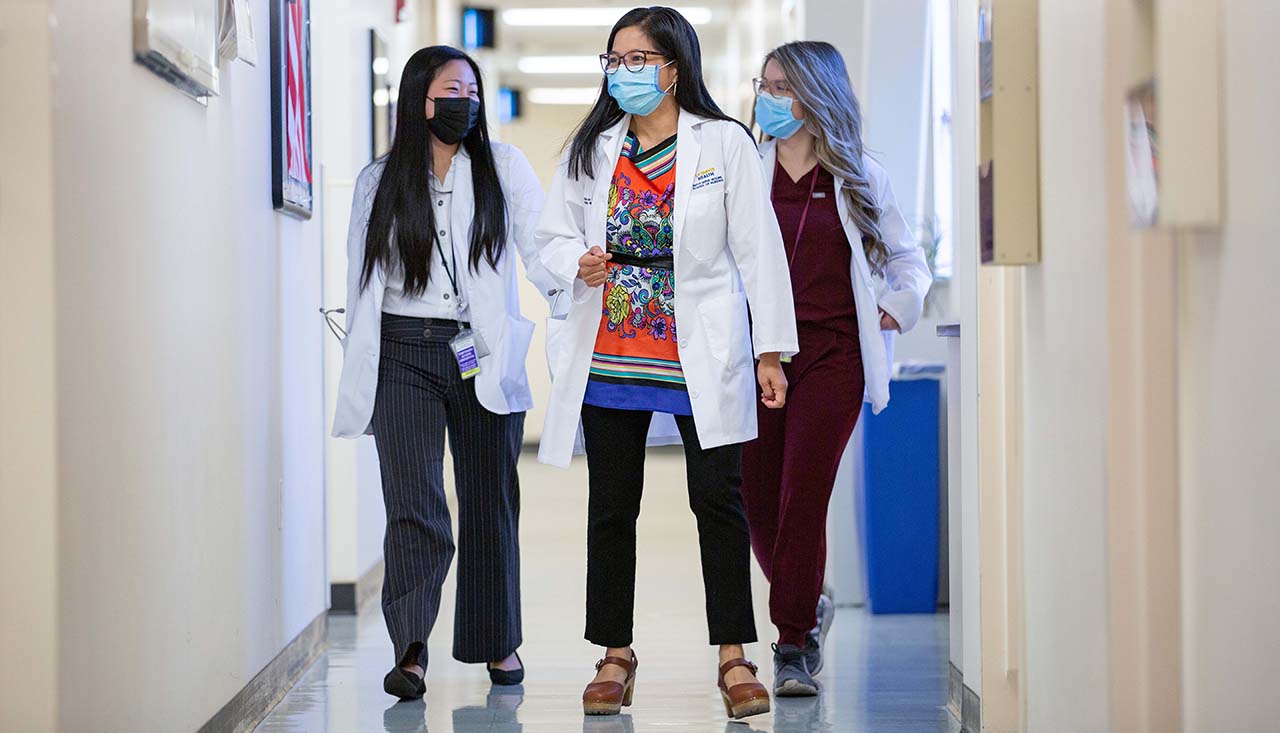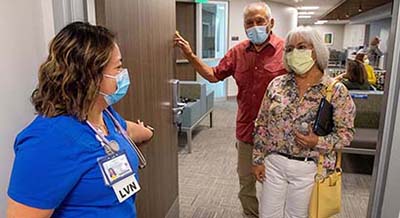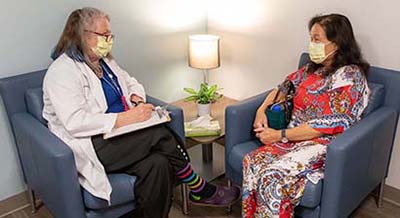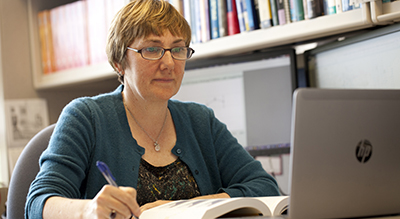The state faces a shortage of 4,100 primary care clinicians by 2029. Rural and low income communities increasingly face a provider shortage. And according to the California Future Health Workforce Commission, “California does not have enough of the right types of health workers in the right places to meet the needs of its growing, aging, and increasingly diverse population.”
UC Davis Health serves many of those underserved areas. A partnership with Sacramento County Health Services, initiated by CEO David Lubarsky, expands primary and specialty care to the underserved. Now, the Betty Irene Moore School of Nursing adds to the effort and the expertise with a faculty class: clinician educators.
“By joining our team, clinician educators are valuable preceptors outside the classroom. Inside the classroom they bring current, real-life experience and knowledge that enhances or supports instruction and mentorship provided by our clinical faculty,” explains Amy Nichols, interim associate dean of Academic Affairs and a clinical professor at the School of Nursing.
Clinician educators are advanced practice providers, nurse practitioners and physician assistants, who work 80% of the time across a network of UC Davis Health and community-affiliated clinics. There, they care for patients and precept family nurse practitioner and physician assistant students in the School of Nursing. The other 20% of their time contributes to teaching clinical skills and simulation training.
“I find this as a unique opportunity to continue clinical practice while at the same time contribute to the education of future advanced practice professionals,” says Ron Ordona, a family nurse practitioner who serves as a clinician educator in UC Davis Health’s Healthy Aging Clinic. “My role as clinician and preceptor complements the knowledge they gather from their didactic and allows the students a 360-degree world-view of what an advanced practice career looks like.”
Since recruiting for these new positions, 12 providers have joined the School of Nursing team. They provide students with team-based approaches in primary care and the impact that advanced practice providers play on the team. For Chris de Belen-Wilson, who works as a clinician educator at the Sacramento County Health Center, the patient encounters offer a glimpse into the humanity of caring for others.
“I work in a fast-paced Federally Qualified Health Center (FQHC) that serves the underserved, the marginalized, refugees and those under-resourced,” de Belen-Wilson says. “There is nuance to taking a history during a patient visit, especially when the patient speaks a different language. Students experience how social determinants of health impact the patient who is sitting in front of them.”
The relationship between these educators and students also supports long-term success for future nurse practitioners and physician assistants.
“Their continuous presence both in clinics as preceptors and in classrooms as instructors provides consistency and reliable feedback for students,” adds Elizabeth Rice, associate dean for Student and Faculty Success. “This helps us identify those students who may be struggling and intervene earlier in their education trajectory.”
For the clinician educators, they hope to plant to seeds of primary care for future practitioners and celebrate the victories of each student.
“We need more advanced practice providers taking care of our honored older adult population. I also hope they will consider community-based senior care as their career,” Ordona says.
“The biggest reward is when students see the holistic picture when serving our patients. This means seeing beyond diagnosis and treatment and understanding the patient’s life context and how their situation can impact their health,” de Belen-Wilson adds.






